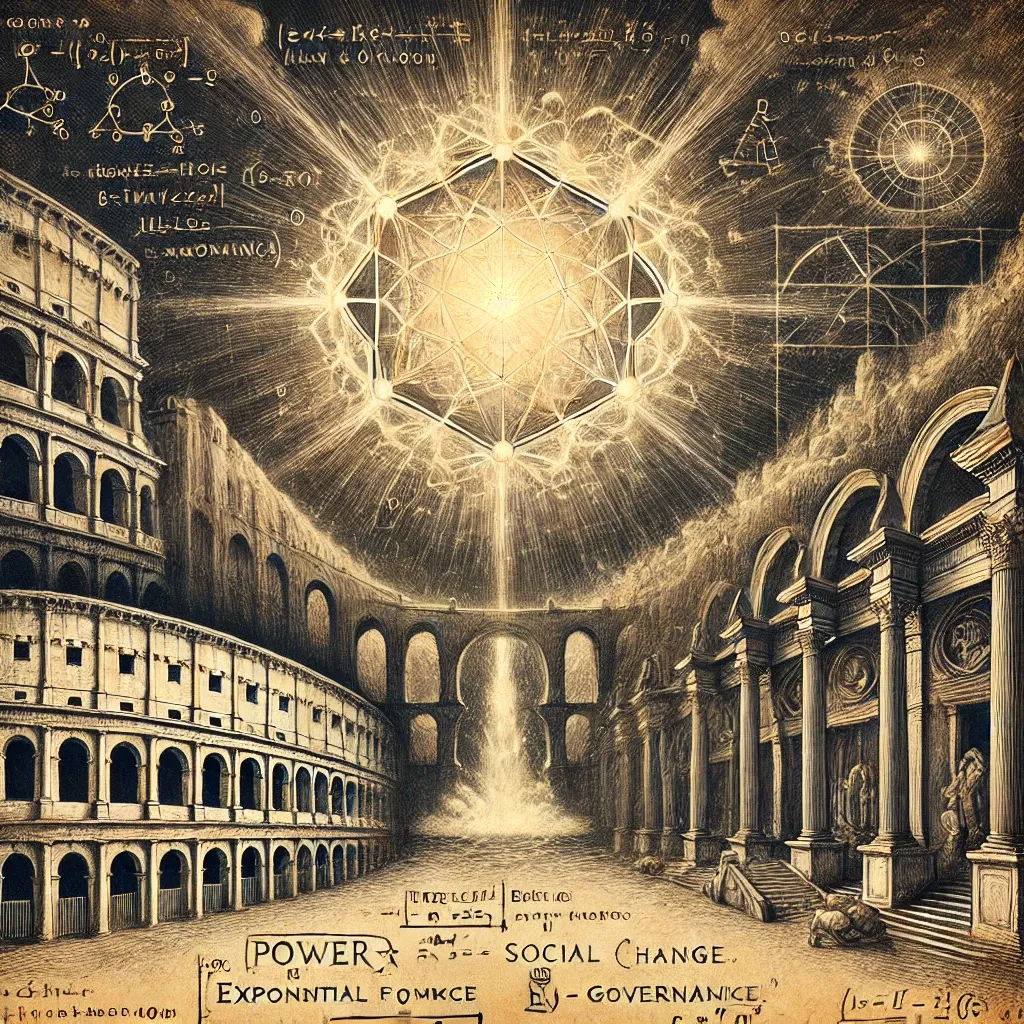POWER AND SOCIAL CHANGE – Exponential Forces in Civilization, Science, and Governance
POWER AND SOCIAL CHANGE – Exponential Forces in Civilization, Science, and Governance
IPAK-EDU MEGACOURSE #1
POWER AND SOCIAL CHANGE – Exponential Forces in Civilization, Science, and Governance
Thursdays, 11AM ET
Instructors: VN Alexander, Brad Miller, and James Lyons-Weiler
ENROLLMENT IS OPEN NOW, COURSE STARTS FIRST THURSDAY IN APRIL, 2025
The rules are changing—fast. Do you know how to recognize how they are changing?
Are you able to navigate power structures in your own life? Are you able to predict transformational political or economic instability that affects your work, family, investments and your future? You are not just a passive observer of power. You are subject to it, shaped by it, and—if you understand it—you can influence it.
By the end of this course, you will not just understand power shifts—you will recognize them as they happen, understand their dynamics analytically, and anticipate their impact before they become history. You will more deeply appreciate that while you are already experiencing these power shifts, whether they recognize it or not, you are also a factor in those shifts via action, or inaction. You will walk away with more than understanding - you will be empowered to approach the world with application and foresight.
How can we know when we are in the middle of a major societal shift? Are we watching the world evolve, destabilize, or transition into something entirely new? History tells us that societies often fail to recognize their own transformation until long after they have crossed a tipping point—whether through economic collapse, the centralization (or fragmentation) of power, or technological revolutions. This course examines the forces that shape civilizations, the hidden mechanisms that drive exponential change, and the structural resilience or fragility of societies in the face of disruption. We will focus on building your analytic ability to consider quantitative models of power shifts.
Using historical case studies, mathematical models of power accumulation, and analyses of modern geopolitical shifts, we will explore how civilizations rise and fall, how power consolidates and redistributes, and how infrastructure investment determines success or collapse. We will examine the balance between centralized governance and decentralized resilience, the role of hidden (latent) variables, and how social unease and unrest and delayed institutional responses impact transformation. Readings from selected resources will provide a deep foundation, alongside contemporary works on AI governance, economic power shifts, and systemic risk.
Through frameworks that assess additive, multiplicative, and compounding forces in history, participants will develop a nuanced understanding of how past civilizations were shaped by unseen forces, how present-day structures are shifting beneath our feet, and how the future may unfold based on emergent trends in science, governance, and technology.
Are we at the precipice of a new power structure? Is AI accelerating the next great societal phase transition? Have we already crossed a threshold without realizing it? By the end of this course, students will be equipped with the analytical tools to recognize, anticipate, and even influence the trajectory of power in a rapidly changing world.
Draft List of Topics by Week, Subject to Change
Course Schedule: POWER AND SOCIAL CHANGE
Week 1: The Foundations of Power—Exponential Factors in History
Week 2: Power, Collapse, and Unrecognized Transformations
Week 3: Investment in Infrastructure—Then and Now
Week 4: How Societies Balance Centralization and Resilience
Week 5: Disruptions, Power Laws, and Hidden Forces
Week 6: Speculative Futures—What Comes Next?
